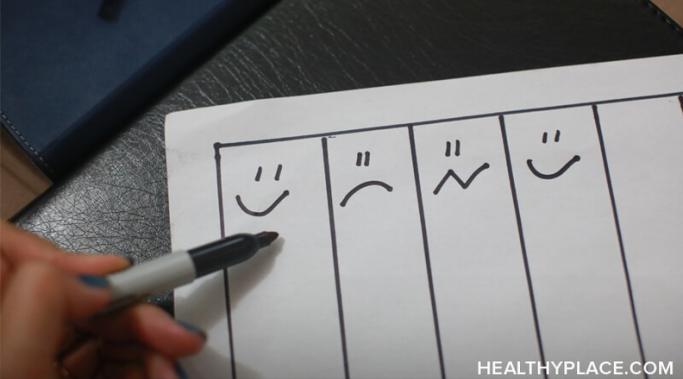Blogs
tneely
It’s no secret that those of us in LGBT relationships tend to have strong emotional attachments with our partners, particularly long-term partners. While this can be a wonderful experience in a relationship with healthy boundaries between “self” and “other”, strong emotional attachments can become maddening when codependency is an issue.
Anyone who has spent any time in the LGBT community may have heard comments like: “Lesbians never break up.” and “Gay men never let go.” While this has been a widely accepted idea often used to stereotype our relationships as dysfunctional, research is showing that there is some truth to these statements. Specifically; that women in same-sex relationships tend to remain connected and intertwined in each others lives long after break-up.
Many people make New Year’s resolutions. I don’t endorse this practice, personally, mostly because I think people are quite unrealistic when they do it. They don’t make goals that make sense and they then place far too much pressure on themselves to turn the goals into a reality.
And possibly, if you’re bipolar, it might be even worse. You might have had the best of intentions when making a resolution like to quit smoking, take your medications as prescribed or create a set bedtime, but by now, you’ve probably noticed that you haven’t quite stuck to your resolution. And if you’re like many bipolars, you’re probably not feeling too good about that.
If you've ever attempted recovery from your eating disorder-- especially if you've been in a eating disorder treatment center -- you've likely heard this refrain at least once: Secrets keep you sick.
It's true. Secrets keep us sick. Eating disorders thrive on secrets.
How else could you get by for so long with binging and purging, with eating less than X calories a day, with exercising for hours on end, with spending hundreds of dollars a month on binges? It's not likely that you're broadcasting these things (I certainly didn't) or someone would hold you accountable.
Defining healthy self-esteem and simple tools to achieve healthy self-esteem.
Dear Fear,
You are not dear, Fear. I am not sorry to say that this relationship is over! I have panicked enough! And I am done with you. Done. Done. Done. Done.
I am tired of you, anxiety. I will no longer let you stop me from being who I can be. Hold me back from my full potential. No more will I allow myself to listen to your lies, anxiety, telling me that I can't handle life, that I have to stay home, seclude myself, and miss out on the fun. I have had it with your warnings that "something bad will happen" or that "I would embarrass myself" or "it will be awful."
"I live in such a fog!", Ophelia said to me last week. "I can't see my way out of it." Boy, do I remember that feeling!
Ophelia lives overseas and we work on her PTSD recovery via Skype. She's terrifically motivated, open to trying new approaches and honest about her healing experience.
The PTSD fog, I've learned, is universal. I myself waded through it for decades until is was so thick I felt its swirl around me was more real than the world in which everyone else lived.
Homework was a touchy subject with Bob, pre-ADHD and treatment. Bob hated it and so did I. I dreaded coming home to help Bob with his homework. I knew a battle would come because Bob never wanted to do his homework. It was boring to him.
I have talked many times about how important a routine is in bipolar disorder (Limitations and Rules that Keep Us Safe). There are many reasons for this, but one of the main ones is because bipolar disorder is considered a circadian rhythm disorder by many medical professionals. Your circadian rhythm is critical to your functioning as a human as it tells your body when to sleep and when to be awake (among other things) and trying to go against it is like swimming upstream. Assuming bipolar disorder is, indeed, a circadian rhythm disorder, we should do everything we can to work to regulate our circadian rhythms in a healthy manner. Keeping a strict bipolar routine is one major way of doing that.
If there's one thing true about psychiatric hospitals, it's that you have a lot of down time. When I was in the state hospital system, I used this time to play Animal Crossing: Wild World on my Nintendo DS. Believe it or not, the game was a helpful therapy.
Animal Crossing: Wild World, or AC: WW for short is a video game in which you live in a rural village with a bunch of anthropomorphic animals. You go around doing tasks for these animals, making money, making friends and other various life adventures. This game taught me three skills: how to read the emotions of other people, how to set boundaries, and how to handle rejection.
Mental illness is usually not visible to the naked eye, or the private eye for that matter, or even the naked private eye, although, candidly, if you’re being followed by a naked private eye he’s the one that needs to be concerned about mental illness, not you – but enough about me.
My point, which is moving across the landscape with the alacrity of a Tasmanian sloth, is this: Whackadoomians have the option of keeping their mental state a secret, a mental state secret – if you will – and if you won’t, I will, so it works out. This seems like a tremendous relief, and in many ways it is, after all this is personal information, often awkward, which we might prefer to keep to ourselves.









I believe she will only be able to rid herself of her demons, and hopefully her BPD as well, when she's ready to confront the abuse of her father. If she can put the blame where it belongs, she may stop projecting that victim/perpetrator cycle on the present men in her life. These demons are a metaphor for the purgatory she has created for herself. That reality has consequences in the real world, but it need not be real in the tangible sense. Exorcising her demons will require the expenditure of real physical energy and probably the destruction of aspects of her personality. If this ever happens, and it's possible but not probable, then these demons will evaporate. They are only as real as one's personality is real. In short, reality is not the question, it's what you make of the things you feel to be real.